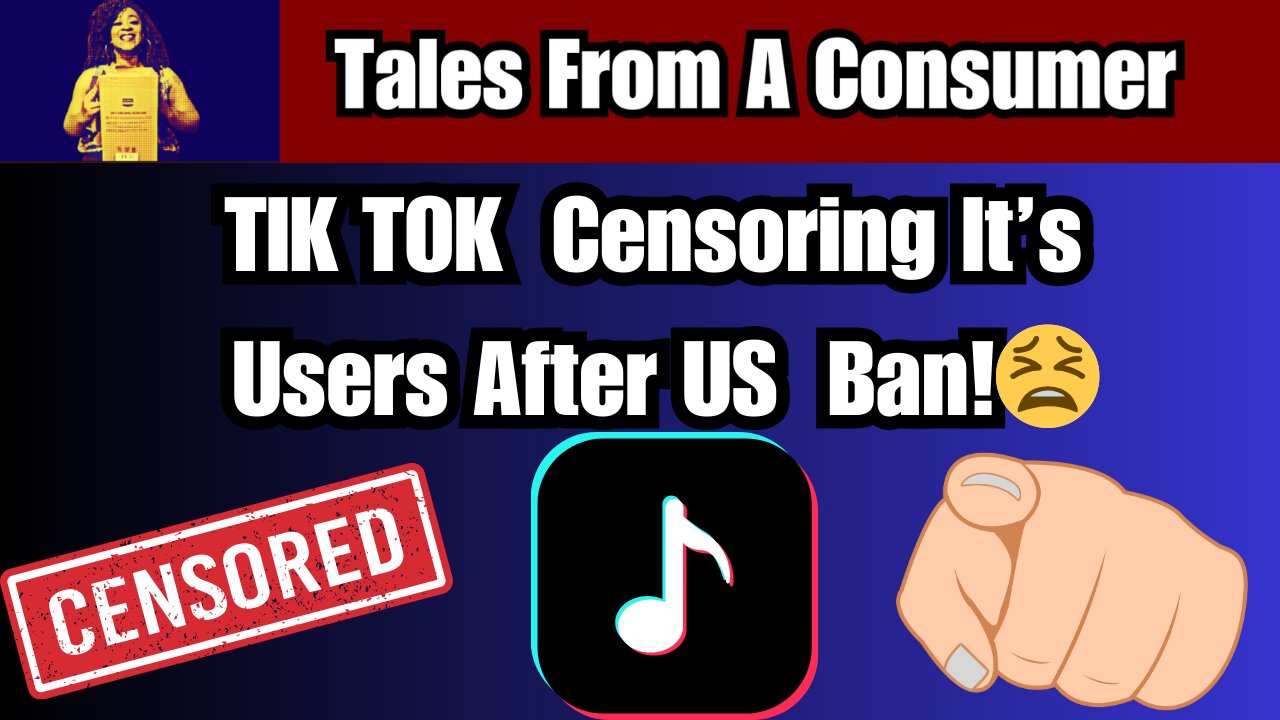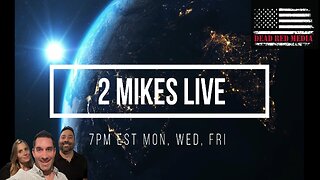Premium Only Content

Tik Tok Becoming Strict Censoring Users After US Ban
TikTok has been a hot topic recently, with numerous users alleging heavy censorship over minor infractions. This uproar has intensified following the US government's signing of a bill to ban the social media platform within the United States. As engaged consumers, we've been closely following these developments to understand the potential implications.
The situation has become increasingly concerning, as many users report facing significant issues on the platform. For instance, during my time on TikTok, I came across a tarot card reader who shared a troubling experience: scammers were impersonating her, soliciting money, and even calling people. This raises a critical question: How are these scammers obtaining users' phone numbers? Despite TikTok's assurances of user safety, these incidents suggest that something more concerning might be happening behind the scenes.
User safety and privacy are paramount in the digital age, and any breach can have far-reaching consequences. TikTok's owners maintain that the platform is safe, but the experiences of many users tell a different story. This disparity has understandably led to heightened concerns about the safety and privacy of the app’s users.
Adding fuel to the fire are conspiracy theories suggesting that the US government has orchestrated a smear campaign against TikTok. According to these theories, the government allegedly paid individuals to create the impression that TikTok is unsafe. Such claims, if true, would indicate a significant level of manipulation aimed at discrediting the platform. These theories are speculative but contribute to the overall mistrust and confusion surrounding TikTok.
This controversy is not isolated to TikTok alone. Other social media giants like YouTube have also come under scrutiny for similar issues. The broader question emerging from these discussions is about the general safety and reliability of social media platforms. Are we as users adequately protected? Are these platforms doing enough to safeguard our personal information and ensure a secure online environment?
The crux of the matter lies in understanding whether these platforms can be trusted with our data and if they are taking the necessary measures to protect their user base. The rapid proliferation of scams and impersonation cases on TikTok highlights a potential vulnerability in their security infrastructure. If scammers can easily access personal information like phone numbers, it suggests a significant lapse in data protection protocols.
Moreover, the allegations of censorship add another layer of complexity. Users are reporting that their content is being removed or their accounts are being restricted for what they believe are trivial reasons. This perceived heavy-handedness in moderation raises questions about the platform's policies and their implementation. Are these actions taken to genuinely uphold community guidelines, or is there an underlying agenda at play?
In addressing these concerns, it is essential for TikTok to provide transparency in their operations. Clear communication about their data protection measures, moderation policies, and steps taken to address security breaches would help restore user confidence. Additionally, independent audits and third-party assessments could offer an unbiased perspective on the platform's safety and security standards.
The broader social media landscape is at a crossroads, where user trust is paramount. Platforms like TikTok and YouTube must navigate these challenges by prioritizing user safety and transparency. For us as users, it is crucial to stay informed, critically evaluate the information we receive, and advocate for our digital rights.
While TikTok's popularity continues to surge, so do concerns about its safety and reliability. The issues of censorship, scams, and data breaches cannot be ignored. As the debate rages on, it is imperative for both users and platforms to work towards creating a safer and more secure online environment. Whether the conspiracy theories hold any truth or not, the underlying issues of user safety and data protection remain critical and demand our attention.
-
 13:42
13:42
Tales From A Consumer
1 month agoMeagan Good Is Getting Married!😫
802 -
 LIVE
LIVE
Kim Iversen
4 hours agoMUSK VS MAGA: Are Americans Too Uneducated and Lazy To Hire? | Debate: “Jesus Wasn’t A Jew”
2,363 watching -
 LIVE
LIVE
Drew Hernandez
2 hours agoMAGA CIVIL WAR OVER H-1B & DREW W/ HODGE TWINS
1,721 watching -
 1:05:22
1:05:22
Donald Trump Jr.
7 hours agoAmerica First Means Reviving the American Dream, Interview with Peter Schweizer | TRIGGERED Ep.203
91.6K194 -
 LIVE
LIVE
The Jimmy Dore Show
4 hours agoTrump BETRAYS MAGA For Elon over H-1B Visas! BBC Editor Whitewashes Israel Coverage! w/Keith McHenry
15,098 watching -
 1:34:02
1:34:02
The Officer Tatum
6 hours agoLIVE: Trump ENDORSES Mike Johnson as Elon BACKTRACKS On H-1B + MORE | Officer Tatum Show EP 32
67.2K93 -
 45:56
45:56
Kimberly Guilfoyle
6 hours agoNew Year. Same MAGA Mission, Live with Roger Stone | Ep. 183
75.3K35 -
 1:49:14
1:49:14
2 MIKES LIVE
10 hours ago2 MIKES LIVE #160 We're Back! Deep Dive Monday!
12.1K1 -
 54:28
54:28
LFA TV
1 day agoTrump’s Triumphant Year | Trumpet Daily 12.30.24 7PM EST
22.4K8 -
 DVR
DVR
Quite Frankly
9 hours ago"2024 Review, Homunculus Flu, Old/New Year Predictions" 12/30/24
48.7K6